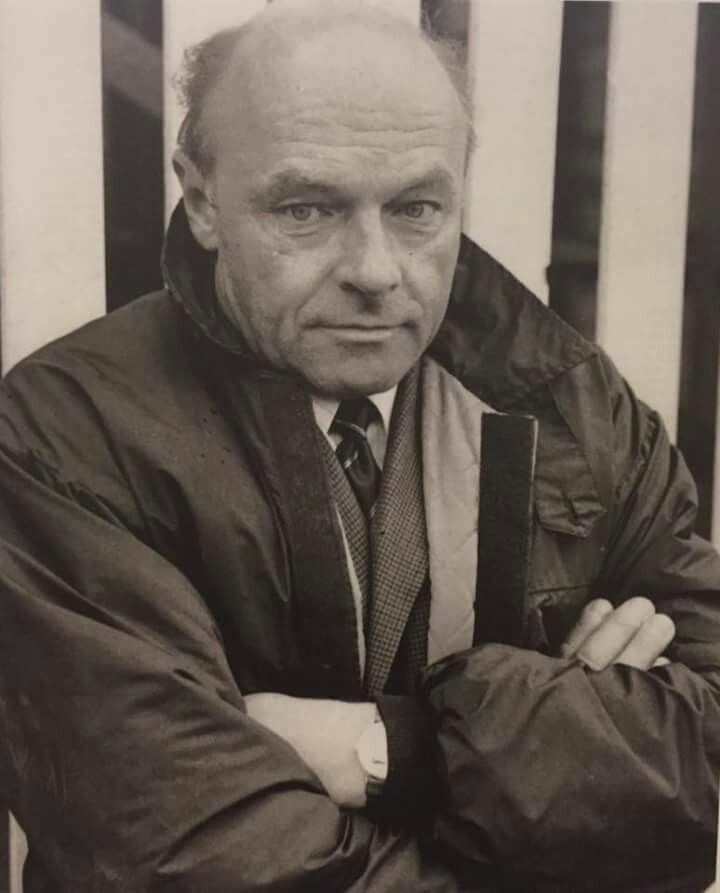Some Grand Prix race fans may be aware that Suzuki began to generate success with their motorcycles in the late 1960s. However, what might be less well-known is how exactly Suzuki went from being relatively unknown to being a Grand Prix winner seemingly overnight. Well, the story of Suzuki's success is really a Cold War story or a story of capitalism vs. communism.
Essentially, the Japanese automotive manufacturer known as Suzuki stole East German technology to power their motorcycles. Going back in history, we see that throughout the late 1950s and early 1960s, the East German motorcycle manufacturer known as MZ was utilizing World War II rocket technology to win countless Grand Prix motorcycle competitions. This technology was originally created by Nazi German engineer Walter Kaaden.
While Kaaden himself wasn't a Nazi, he was a brilliant German engineer who was forced to develop technology for Hitler and the Nazis during the war. It was Kaaden's genius that laid the foundations for the modern two-stroke engine. Read on to discover more about Kaaden's engineering and how exactly Suzuki was able to steal communist technology to make their motorcycles faster.
The Overlapping History Of The Two-Stroke Engine And Communism
To understand Suzuki's Grand Prix success, we must first dive into Walter Kaaden's role in developing the two-stroke engine. Upon World War II ending in 1945, Kaaden was unsure if he would live, given that he had been working for Hitler throughout the war. However, Kaaden was not a Nazi. In reality, he and many other great German engineers of the era were forced to work as engineers in the German military.
After the war ended, Kaaden did have a chance to leave Germany along with fellow engineer Wernher von Braun who went on to work for NASA. However, Kaaden did not want to leave Germany and was more into race technology anyway, as he had been working on two-stroke engine technology for the German manufacturer DKW prior to the war. By the end of 1945, Kaaden found himself back in East Germany in his hometown, which was now controlled by the Soviets.
Kaaden Elevates East Germany In The World Of Grand Prix
In the early 1950s, Kaaden once again obtained a job at DKW. However, DKW would eventually change its branding to MZ. The Soviets actually wanted Germany to compete for auto dominance once again and put Kaaden in charge of developing technology for the new German race team. One of the first tasks Kaaden was given was to build a batch of two-stroke 125cc race bikes for the German team.
In 1955, MZ competed at the Isle of Man TT with Kaaden's new bikes. While they didn't win, they did shock the racing world by coming in 5th and 6th place. Kaaden's ability to create top-of-the-line race bikes was quite impressive, given the conditions he was working in. The country was in shambles after the war, so Kaaden's ability to put MZ on the map in Grand Prix races was more of an underdog story.
East German Grand Prix Star Ernst Degner Takes Tech Secrets To Suzuki
In 1956, MZ signed a new young talent to ride their two-stroke bikes. The new rider was a young man from East Germany by the name of Ernest Degner. While Kaaden continued to perfect the two-stroke engine on the MZ bikes, Degner was able to get MZ their first podium win by 1958. Degner and MZ went on to get their first Grand Prix win at the Swedish Grand Prix 250cc class.
Despite making progress with MZ, Degner wanted out of East Germany. No matter how well he rode or what accolades he achieved, MZ did not have the funding to pay Degner his worth. Degner wanted to live like a celebrity, something he saw racers from well-funded countries getting to do. Degner's desires, combined with Suzuki's desire to become competitive in the racing world with their two-stroke racers, created the perfect storm. In 1961, Degner struck a deal with Suzuki and moved to Japan. Along with his racing abilities, Degner took Kaaden's secrets of perfecting the two-stroke engine with him to Japan.
Suzuki Wins The 50cc Class In The World Championship With Stolen Communist Technology
Once Degner arrived in Japan, Suzuki finally had something significant that they could use to elevate the performance of their bikes without putting in the years of research that it normally takes to perfect an engine. Degner's move to Suzuki is truly one of the most blatant thefts of race and technology secrets ever to transpire.
While Degner's move to Japan and his sharing of Kaaden's two-stroke engine technology was nowhere near ethical, Suzuki received a major payoff for bringing Degner on board. In 1962, Suzuki took their first Grand Prix win in the 50cc class with Degner as the rider. This win was less than a year after Degner made his move to Japan. Suzuki continued to be a racing powerhouse while MZ faded into the background. However, there is no Suzuki without the brilliant work of Walter Kaaden, and that's the story of how Suzuki stole communist technology to make their race bikes faster.
Read more about Suzuki's rise to the top of the racing world in Mat Oxley's book, Stealing Speed: The Biggest Spy Scandal in Motorsport History.





_en_Jan_Huberts_(2e)_Bestanddeelnr_914-0816.jpg)






Gloss